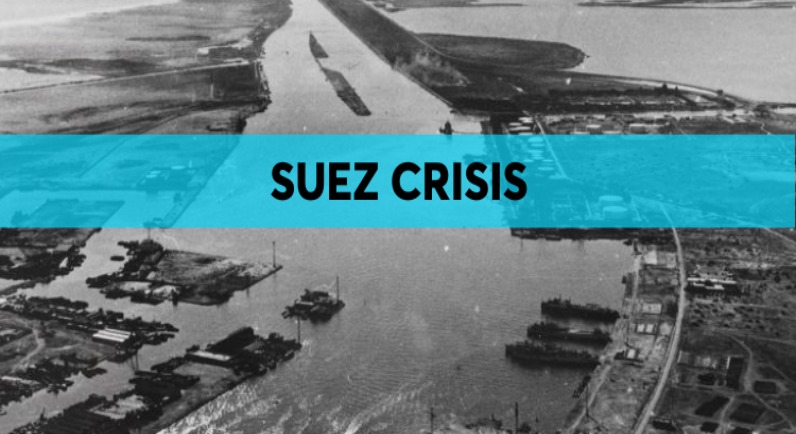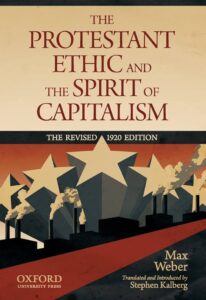Table of contents
The nationalization of the Suez Canal dealt a serious blow to the interests of Western countries, especially Great Britain, France, and the USA, as control over the canal was critically important to each from geopolitical and economic perspectives. For Great Britain, the Suez Canal was one of the main levers to maintain its global hegemony. The British government held a 44% share in the Suez Canal Company, which ensured significant political and economic influence in the region. This was compounded by the fact that about 25% of British imports passed through the Suez Canal, further increasing its strategic importance.
The control of the Suez Canal was equally important for France. The French share in the company was distributed among approximately 70,000 French shareholders, representing a serious economic and financial interest for France. Additionally, the French government expressed dissatisfaction with Egypt’s President Gamal Abdel Nasser’s support for the Algerian Arab National Liberation Movement. This movement posed a direct threat to France, as it complicated France’s efforts to maintain control over Algeria.
The USA primarily sought to prevent the restriction of geopolitical influence of NATO member countries both regionally and globally. The rise of a revolutionary government in Egypt aligned with the Soviet Union and oriented towards a non-capitalist path was seen as problematic. This government voiced anti-Zionist and pan-Arab ideas and aimed to establish a unified, strong, and influential Arab state under Egypt’s leadership. The strengthening of such a state was considered a significant strategic threat by Western powers both for Israel’s security and for imperialist interests in the Middle East.
The situation was further aggravated by Egypt’s growing rapprochement with the Soviet Union and its activism in the Non-Aligned Movement. This trend raised suspicions that Egypt could become not only a leader in the Arab world but also in the entire Third World. The actions of Britain, France, and the USA during this crisis were dictated by the global economic and political interests of their bourgeois classes.
Regarding Israel’s interests in this conflict, on November 5, 1956, in a reply letter from Prime Minister David Ben-Gurion to Soviet Premier Nikolai Bulganin, Israel justified its attack on Egypt with two main arguments: the necessity to lift the blockade of the Strait of Tiran, which restricted Israel’s navigation in the Red Sea, and the need to stop attacks from Palestinian fighters supported by Egypt from the Gaza Strip. However, beyond the stated reasons, Israel had other motives: like in other wars with Arab neighbors, Israel sought territorial expansion in this conflict as well. It was also important for Israel to create a crisis situation for Egypt’s revolutionary government, which was openly anti-Zionist. Israel sought to take advantage of the moment when it was promised victory by powerful allies such as France and Great Britain. The military support from these Western European states significantly increased Israel’s confidence.
On October 30, the Soviet Union demanded measures at the UN Security Council to stop Israel’s aggression. The fire cessation resolution supported by the USSR and USA was vetoed by France and Great Britain. The next day, they began military operations in Egypt. On November 3, a ceasefire resolution was prepared in the UN General Assembly and approved by 59 votes to 5. On November 5, Soviet Foreign Minister raised the issue of France and Britain’s failure to comply with the resolution at the Security Council and threatened the aggressor countries that if the fire was not stopped within 12 hours, the USSR and the USA would use military force to stop them. The Soviet side emphasized its readiness to protect victims and defeat the aggressor. On the same day, the USSR wrote to US President Dwight Eisenhower proposing joint efforts to stop the conflict. After the American rejection, the USSR decided to take responsibility to stop the war itself. Premier Bulganin sent special letters to British Prime Minister Anthony Eden, French Prime Minister Guy Mollet, and Israeli Prime Minister David Ben-Gurion, issuing warnings and sometimes even threats of missile attacks. These Soviet messages were quickly followed by replies expressing readiness for ceasefire.
The stated reasons for Western opposition to Egypt’s nationalization of the Suez Canal were apparently mere propaganda masking colonialist goals. The West believed that Egyptian independent management of the canal was doomed to failure. However, statistics show this assumption was unfounded. If in 1955 the Suez Canal accounted for 13.5% of global maritime freight, by 1966 this figure had risen to 16%. During the same period, the canal’s cargo volume doubled from 107 million to 247 million tons. The disruption of the Suez Canal about ten years after the crisis was caused not by Egyptian inability but by the next aggressive war of Israel, a loyal Western ally. The Six-Day War in 1967 closed the canal, harming the economies of Egypt and many other countries worldwide. According to the UN, the damage to the global economy caused by the canal’s inactivity in the first four years exceeded 7 billion dollars, growing by 1.7 billion dollars annually. After eight years of closure, the canal reopened on June 5, 1975. Soviet military specialists played a major role in its restoration, removing more than 40,000 mines and blowing up over 750,000 mines.
During the preparation of the aggressive operation, the USA tried through diplomatic pressure to force Egypt to abandon nationalization and accept the so-called "Dulles Plan," which provided for foreign control of the Suez Canal and denied Egypt’s sovereign rights over it. Moreover, the USA actively participated with Great Britain in the financial blockade of Egypt, including halting funding for the construction of the Aswan Dam. However, after the war began, Washington publicly condemned the aggression of the three countries. The USA’s contradictory position can be explained by its desire to gain goodwill in the Arab world and avoid pushing newly independent states into the Soviet camp. At the same time, the USA did not want to openly support the aggression to avoid alienating the Arabs but also did not want to preserve the anti-imperialist, anti-Zionist Egyptian government increasingly allied with the Soviet Union. Thus, the USA’s most profitable stance was distancing from the direct aggression and playing a double game. Had the USA adopted a tougher stance against Egypt, the crisis would likely have escalated into a larger conflict and direct US-Soviet confrontation, as happened during the Cuban Missile Crisis in 1962.
It is probable that the USA expected the aggression to fail due to Soviet resistance and its own position, which would deal a blow to British and French dominance in the region and facilitate American takeover of old colonial powers’ positions in the Middle East. Indeed, the Suez Crisis marked another failure of British and French policy in the Middle East. Britain lost its remaining economic influence in Egypt, Jordan’s King Hussein removed the English officer Glubb Pasha from the leadership of the Arab Legion, and the 1958 revolution in Iraq ended the pro-Western Hashemite monarchy, replacing it with a pro-Soviet republican government. France was forced in 1962 to give up Algeria to the victorious Arab nationalist movement. The USA effectively replaced Western European colonial powers. Evidence of this is the "Eisenhower Doctrine" announced on January 5, 1957, which asserted the USA’s right to intervene in the internal affairs of any Middle Eastern country under the pretext of fighting communism.
The Soviet Union’s diplomatic method — responding to aggression with threats — was effective and stopped the tripartite war against Egypt, boosting its prestige in the Arab and Third World countries. The USSR replaced the USA and Britain in financing and building major industrial projects in Egypt such as the Aswan Dam and the Helwan metallurgical plant. It was a major success for the Soviet Marxist-Leninist ideology that an anti-imperialist, anti-Zionist revolutionary government on a non-capitalist development path retained power in Egypt without territorial losses, despite the highly disproportional balance of forces: Egypt, which had expelled the British army only two years earlier, versus Great Britain, France, and Israel.
The Suez Crisis outcomes greatly promoted Nasser’s ideas across the Arab world, emphasizing shared Arab national consciousness and that the borders between Arab countries were a result of imperialist policies and that Arab unity from Marrakech to Bahrain was necessary. Two years later, in February 1958, based on these ideas, Egypt and Syria united to form the United Arab Republic with President Gamal Abdel Nasser at the head. In March 1958, an anti-monarchical revolution took place in Iraq, led by the "Free Officers," the vanguard of which was inspired by Egypt’s 1952 revolution. The wave of so-called "Nasserism" threatened Lebanon, Jordan, and other Arab countries. In response, pro-Western Arab monarchies took measures against the spread of revolutionary ideas. The conflict between revolutionary and monarchist Arab states is often referred to as the "Arab Cold War."








